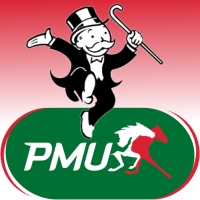 On Thursday, the European Court of Justice (ECJ) declared that betting monopolies may be justified under certain circumstances. The decision stemmed from a 2005 case bought by Maltese online betting operator Zeturf, who wanted France to bust up the legal monopoly enjoyed by French horseracing betting outfit Pari Mutuel Urbain (PMU). The Conseil d’Etat (French high court) asked the ECJ for guidance, et voila.
On Thursday, the European Court of Justice (ECJ) declared that betting monopolies may be justified under certain circumstances. The decision stemmed from a 2005 case bought by Maltese online betting operator Zeturf, who wanted France to bust up the legal monopoly enjoyed by French horseracing betting outfit Pari Mutuel Urbain (PMU). The Conseil d’Etat (French high court) asked the ECJ for guidance, et voila.
The ECJ ruled that “a monopoly on off-course betting on horseracing may be justified if it pursues the objective of combating the dangers linked to games of chance in a consistent and systematic manner.” The ECJ touted the supposed ability of monopolies to ensure a “particularly high level” of protection against the scourges of gambling addiction, fraud and money laundering.
The Conseil d’Etat must now determine whether France “genuinely sought” such lofty goals when they enabled PMU’s monopoly, and whether state controls of PMU’s business “are actually implemented in the consistent and systematic pursuit of the objectives sought by the establishment of the system whereby exclusive rights are conferred on the PMU.”
We can’t help thinking that the ECJ’s ruling is much the same as the American constitutional guarantee of the “pursuit of happiness.” There’s no guarantee you’ll actually get happy, only that you’ll be allowed to try. Just like PMU doesn’t actually have to achieve any of its lofty monopolistic goals, only that it be seen to be attempting to do so. They have to be trying at least as hard as all those fat kids waddling their way through the 100m dash on “Everyone Gets A Trophy Day.”